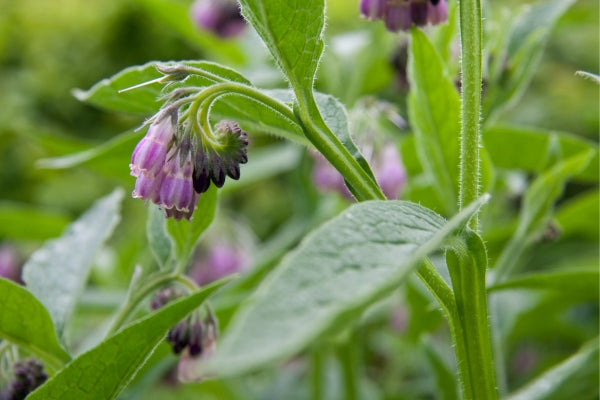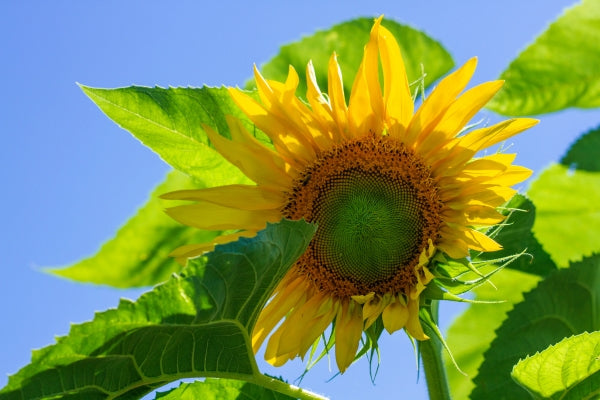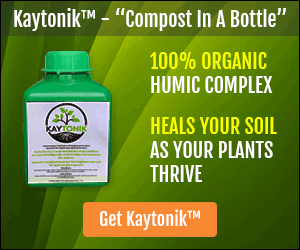Did you know Soil Health can be built up in various natural and sustainable ways? While you can add compost to the soil to improve productivity or use organic soil amendments to build up structure and help cycle nutrients, the plants growing in your garden can also have an impact on the health of the soil.
The following plants work wonders for improving your soil - in fact, some of them may already be growing on their own in your backyard!
Peas (and Other Legumes)
Known for their nitrogen-fixing properties, planting peas, beans, and other legumes in your garden can significantly boost this vital nutrient. Due to their symbiotic relationship with microorganisms in the soil, they can actually improve soil fertility by cycling nutrients in the soil to make them more bioavailable for plant uptake. Leaving the roots in the ground after harvest will provide growers with the maximum benefit.

Stinging Nettle
You will want to use caution with this plant, as it can pack a sting if not handled with gardening gloves. Nettle is known to accumulate nutrients in the soil and bring them closer to the rhizome, where they can be best absorbed. (As a bonus, it has many medicinal properties when consumed, just be sure you cook it first to remove the sting!)

Red Clover
Another nitrogen-fixing plant - red clover, grows easily in most climates and comes back year after year. Add the cuttings to your compost pile to increase nitrogen there, too. As clover grows so densely, it also helps to build soil structure and retain moisture in the soil. And if that wasn’t enough - its flowers attract both pollinators and beneficial bugs that can help control pest populations. Clover make a great alternative to a traditional grass lawn, and is edible with many medicinal properties.

Alfalfa
This plant’s deep taproots help to aerate the soil and provide better drainage by changing the soil structure. The crop can be used as a cover crop, fixing nitrogen into the ground and acting as a living mulch for intercropping. Because it grows so densely, it prevents soil erosion and encourages carbon sequestration through photosynthesis.

Alder Tree
This hardy tree is known to grow well in poor soils, and helps to improve them as it grows. In addition to its nitrogen-fixing and carbon-sequestering qualities, it provides an excellent habitat to support a variety of wildlife - making it an essential contributor to a healthy garden ecosystem. It is typically found growing near water and can actually help to reinforce riverbanks by keeping the soil together with its extensive root system.

Comfrey
This hardy perennial is a star of permaculture because it will come back on its own year after year. Its root system can stretch down further than 10 feet beneath the soil's surface, bringing essential nutrients up closer to the surface. These strong roots are also effective at breaking through compacted clay soils and providing the necessary aeration for other vegetation to grow. Like most of the plants on this list, it adds nitrogen to the soil through its decomposing leaves that fall onto the ground - but it will also help to add potassium and phosphorous in the same way.

Milk Thistle
While it is sometimes criticized as being an invasive plant, Milk Thistle does have soil-building qualities. The plant is high in potassium, while its hardy and deeply penetrating roots help break up subsoil and bring iron closer to the surface. It is also a beneficial plant for pollinators and other insects. Milk Thistle encourages the microbial life in the soil to grow and thrive as they feed on its roots, cycling nutrients and improving soil structure.

Sunflowers
Sunflowers have an extensive root system that helps to support their grand stature. Because these long and hardy roots reach far down into the soil, they effectively create channels for water, air, and nutrients needed to build up soil health. Sunflowers are an excellent plant for pollinators and a great source of food for birds and small animals. While they are annual flowers, they almost always self-sow their seeds due to the abundant amount they produce and will typically come back year after year, sometimes being transported by birds and popping up in surprise locations.

Healthy Soil plays an absolutely vital role in our own health as humans. As questionable agricultural practices and climate shifts continue to degrade the health of our soil, we must do what we can to regenerate and restore it. With increased awareness and knowledge, we are all capable of taking steps in the right direction.
Share this post and browse our other blog posts to learn what you can do to help preserve the health of this vital contributing source of life on our beautiful planet.















